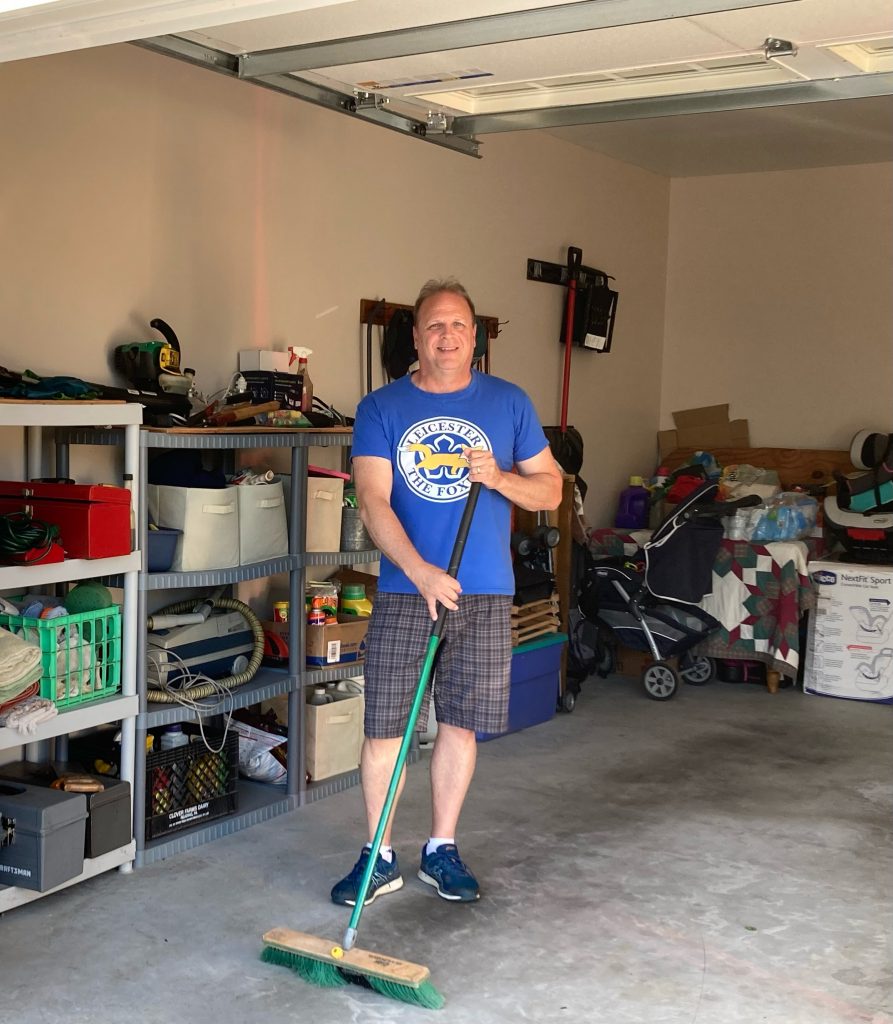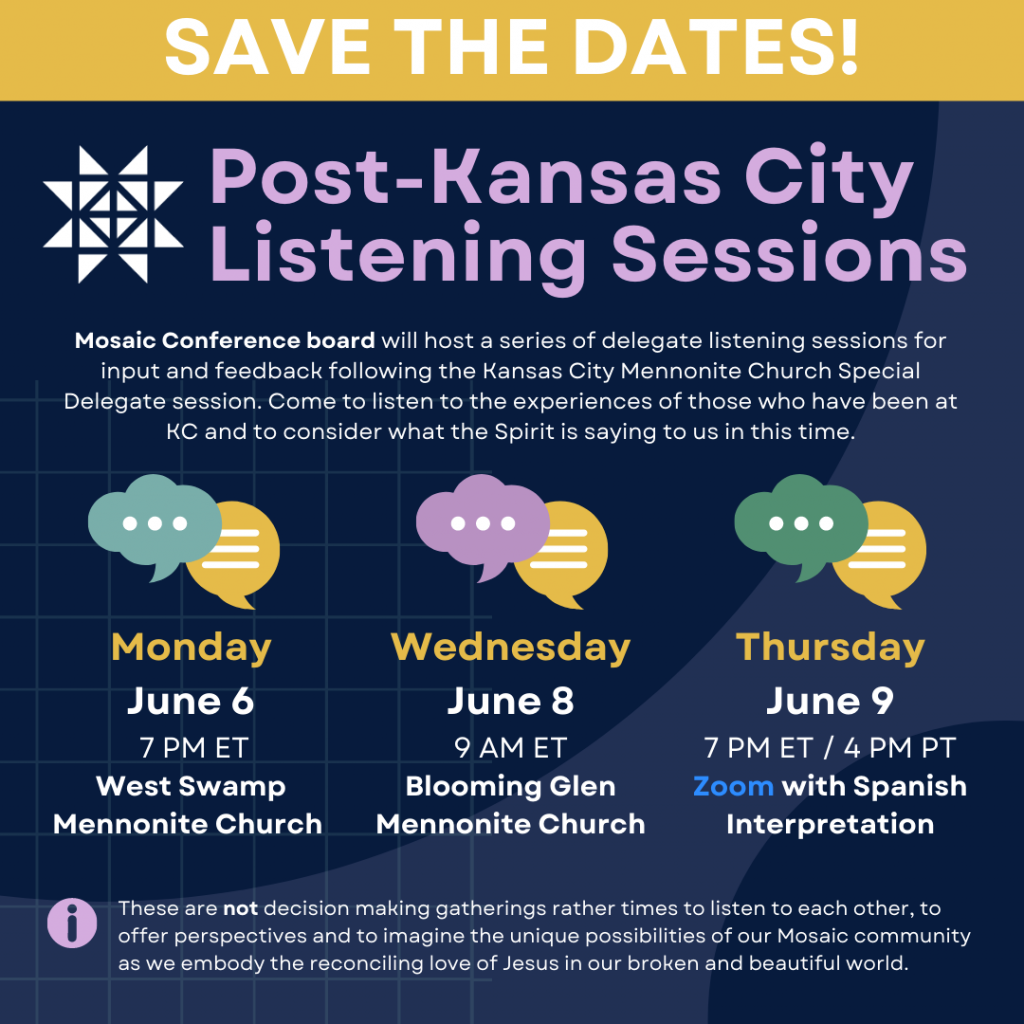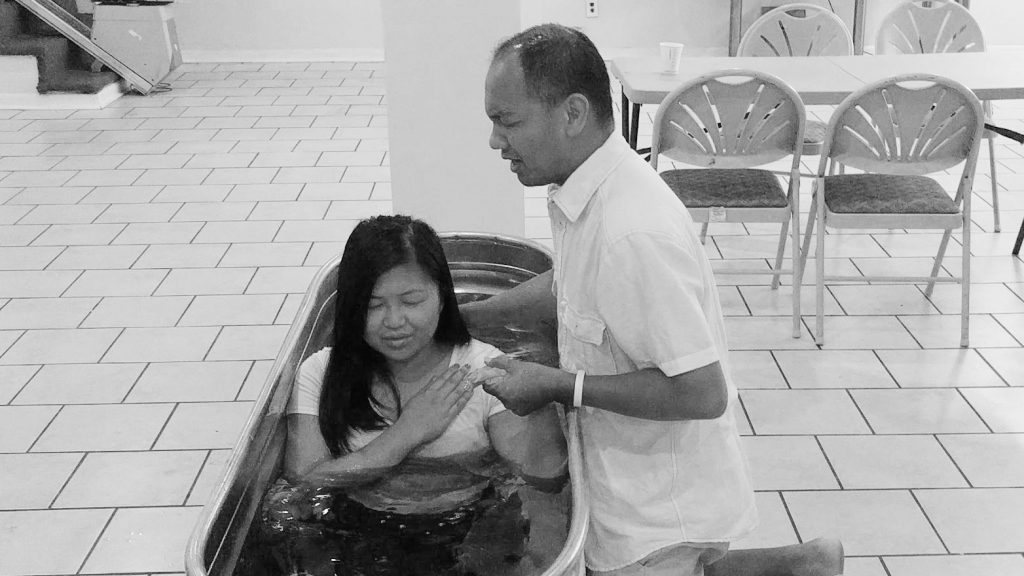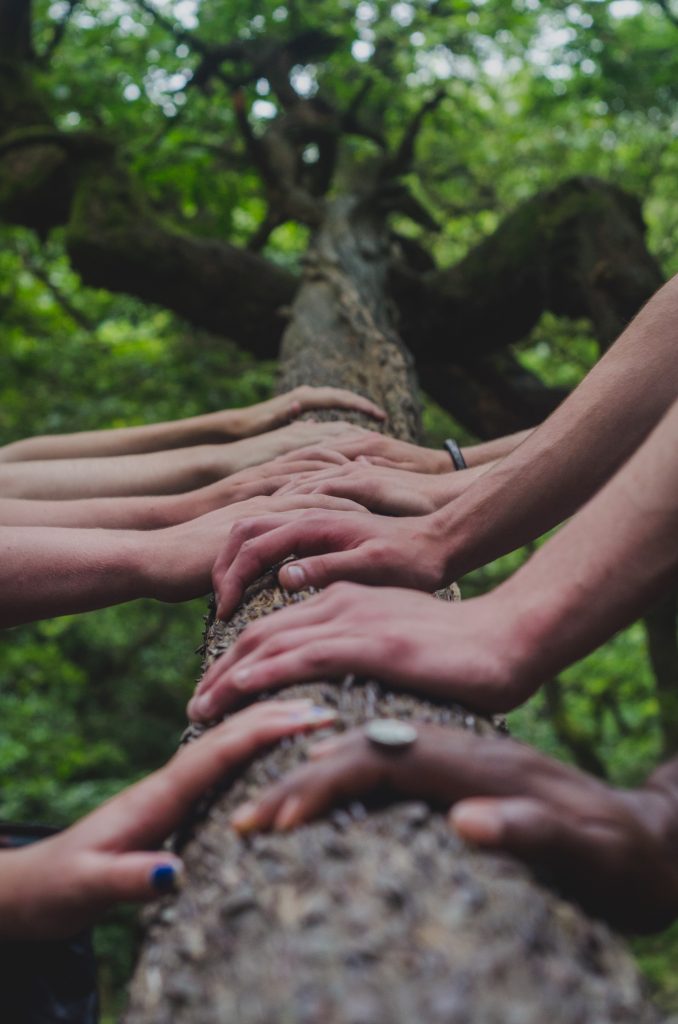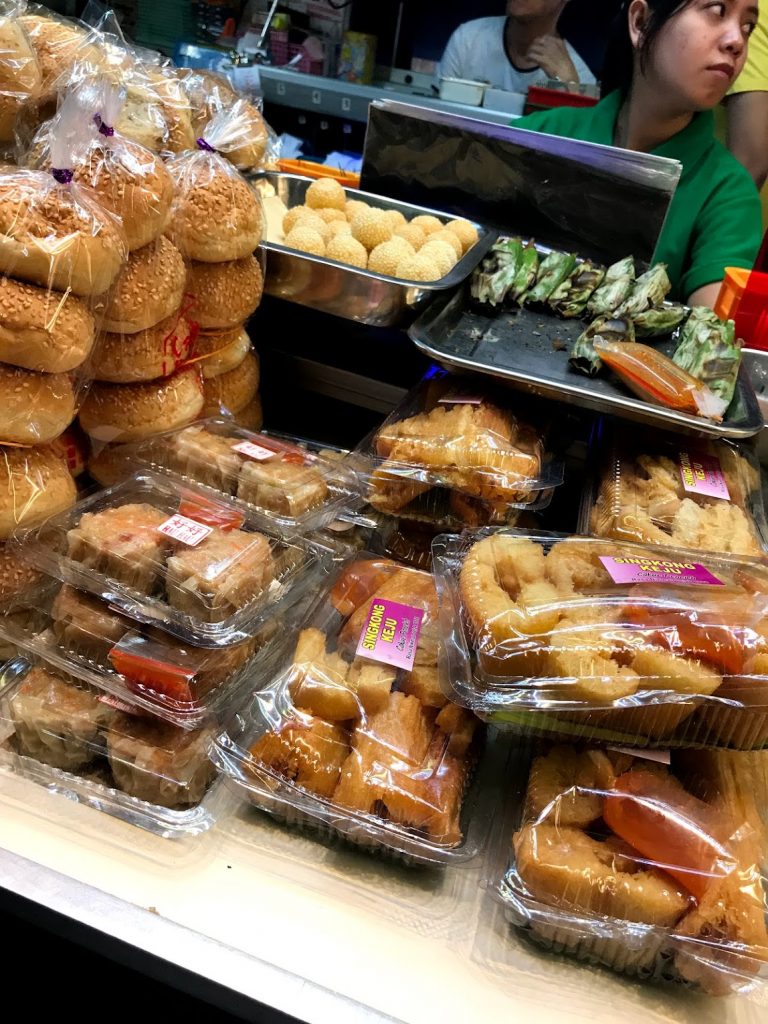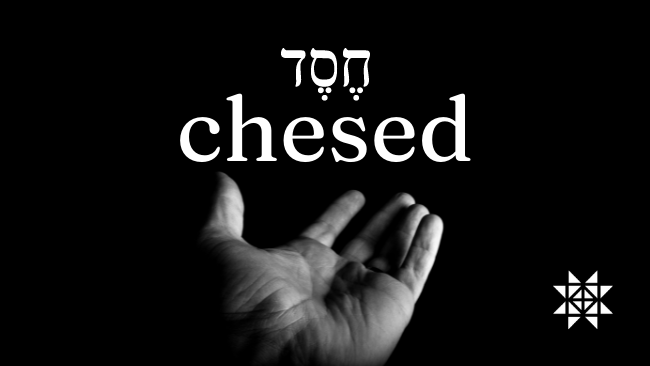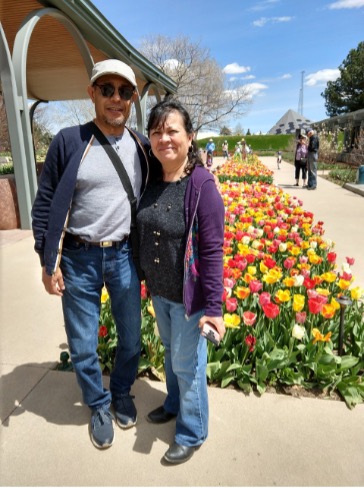Now that the Kansas City MC USA Special Assembly is over, Mosaic Conference is planning the next steps for our Conference. Here are three things to know as we move forward.
- The Mosaic Conference Board is hosting three listening sessions next week (June 6, 7, and 9) for delegates who were in Kansas City and for Mosaic Conference delegates (those who attend Mosaic’s Annual fall Assembly.) These are listening sessions for Mosaic Conference delegates to hear from Kansas City delegates as they share their experiences. No decisions will be made. Input from these listening sessions will be processed at the upcoming Mosaic Conference Board sessions in July. All persons attending any of the three listening sessions should register here.
- Mennonite Church USA resolutions are non-binding for Conferences. Our Mosaic Conference Formation document remains in place which includes the Grace and Truth and Going to the Margins Church Together Statements. The Confession of Faith in a Mennonite Perspective remains our foundational theological statement.
- Conference Assembly Scattered sessions will be planned for this fall prior to our Annual Assembly on Saturday, November 5, 2022. We will continue to discern the Spirit’s call to us as a community together while we focus on Psalm 117-118, the theme of this fall’s Annual Assembly as described by Moderator Ken Burkholder last week, and the steadfast love of God through even challenging times.

